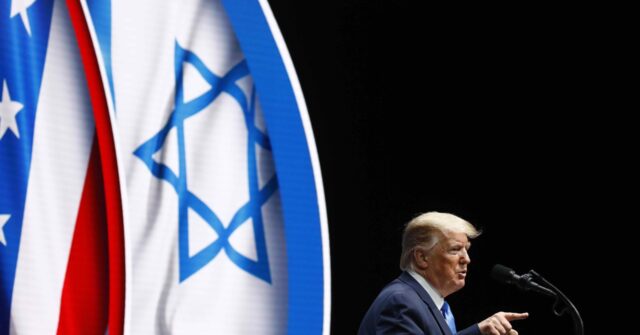A recent poll conducted by the Israel Democracy Institute has revealed surprising preferences among Israeli voters regarding the upcoming U.S. presidential election. The survey indicates a significant majority of both Jewish and Arab Israelis favor former President Donald Trump over Vice President Kamala Harris. Overall, 65% of Israelis support Trump, while only 13% favor Harris. This trend is even more pronounced among Jewish Israelis, with 72% backing Trump as opposed to just 11% for Harris. However, the findings regarding Arab Israelis, who primarily identify as Muslim, have drawn particular attention due to their unexpected alignment with Trump.
The Israel Democracy Institute’s findings emphasize the perceptions of the candidates’ stances on issues pertinent to Israeli interests. When the poll asked respondents which candidate would be better for Israel, nearly two-thirds indicated they believed Trump was more favorable. Specifically, the results show that 72% of Jewish respondents and a notable portion of Arab respondents perceive Trump as a more beneficial choice for Israel’s interests compared to 11% who favor Harris. Interestingly, 46% of Arab respondents feel there is no difference between the candidates, while 27% favor Trump and 22.5% favor Harris, indicating a slight preference for Trump among Arab voters.
This divide in opinions among Arab Israelis, while still leaning toward Trump, lies just outside the poll’s margin of error, which is 3.58%. The notable backing for Trump among Arab citizens may reflect broader public sentiments and political motivations within the community, as they assess the candidates based on their policies and perceived potential for improving regional stability. The late push by Trump, who is campaigning particularly in Arab communities in Michigan, presents his past successes in diplomacy as evidence of his capability to achieve peace, contrasting this with the perceived failures of the current administration.
Moreover, some Arab American voters, including those holistically aligned with the Palestinian cause, have shown a willingness to engage with Trump’s pro-peace promises. This opens a pathway for Trump to connect with a demographic that is typically less favorable toward Republican candidates. His messaging appears to resonate with a segment of Arab voters who seek a viable resolution to the long-standing conflict in the region. The emphasis on his previous administration’s efforts may contribute to an increasing number of Arab voters evaluating their options outside traditional party lines.
In light of these findings, it becomes evident that the political landscape in Israel is multifaceted, with varying preferences and values across different communities. While the Jewish majority is strongly endorsing Trump, it is intriguing to note the nuanced electoral behaviors among Arab Israelis, reflecting a blend of geopolitical considerations and domestic political interests. As the election approaches, the dynamics will continue to unfold, showcasing shifting allegiances and highlighting the complexities of the Israeli voting populace.
The significance of these polling results extends beyond the immediate electoral implications for the U.S. presidency; it raises questions about the broader implications for U.S.-Israel relations and domestic policies regarding Arab citizens in Israel. As this populist wave grows, political strategists and scholars alike will be closely watching how these electoral trends evolve and how they might influence future interactions between the United States and Israel, as well as the policies directed toward the Arab population within Israel itself. The upcoming election promises to be a pivotal moment that may redefine political affiliations and assumptions in both nations.

